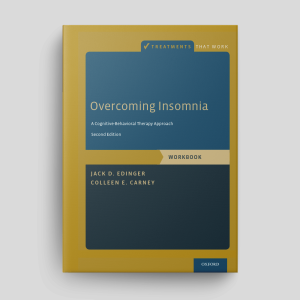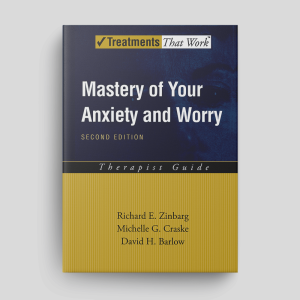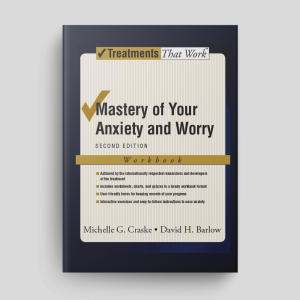Overcoming Insomnia (Second Edition): Therapist Guide
This cognitive behavioral therapy (CBT) manual provides a structured, evidence-based approach to treating insomnia. It offers mental health professionals a session-by-session guide to assessing, diagnosing, and implementing effective treatment interventions to help clients overcome chronic sleep difficulties. A client workbook is downloadable separately.
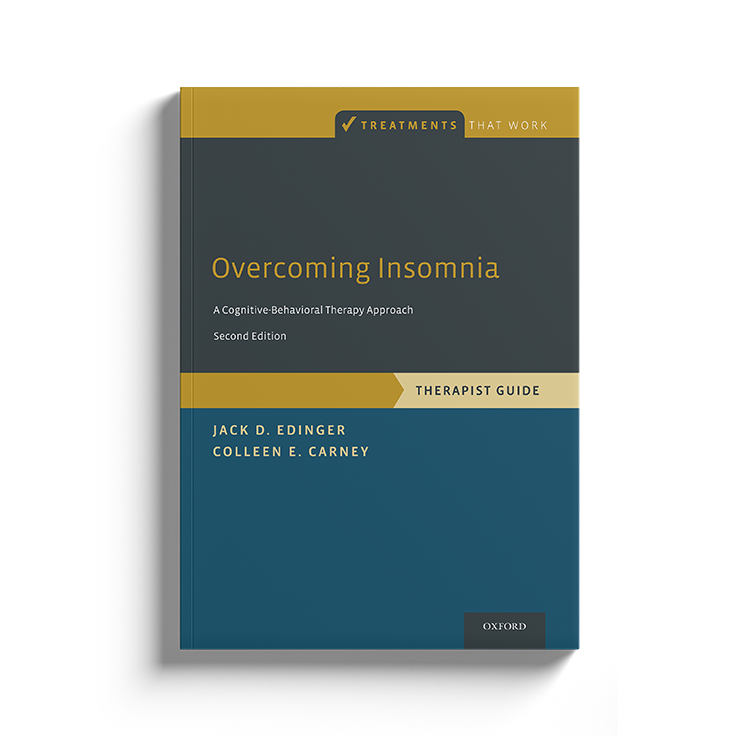
Download or send
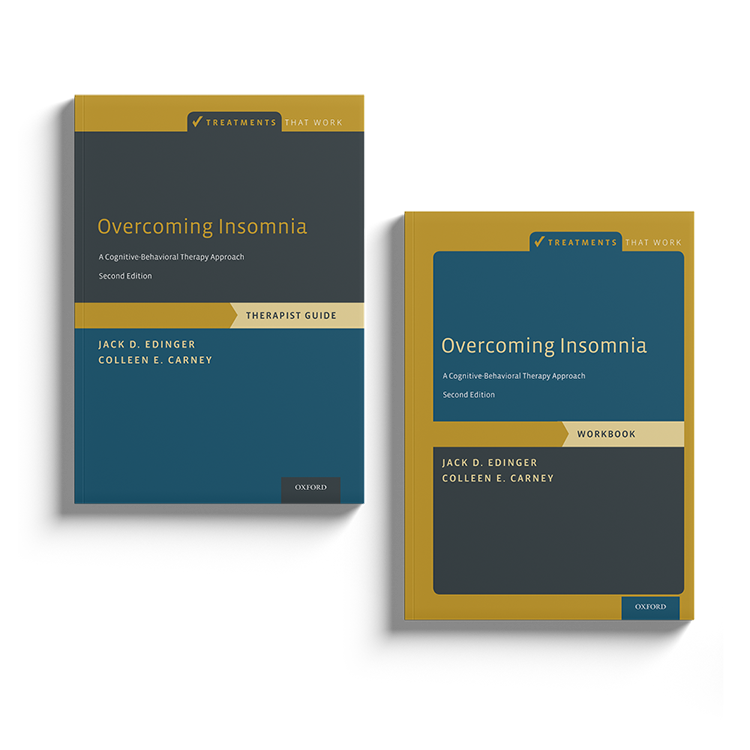
Overview
Insomnia is a common yet debilitating condition affecting millions worldwide. Without effective treatment, chronic insomnia can lead to significant impairments in mental and physical health. While medications are often prescribed, they do not address the underlying behavioral and cognitive factors that perpetuate insomnia.
This CBT-based treatment program offers clinicians a structured protocol for treating insomnia using behavioral interventions, cognitive restructuring techniques, and evidence-backed strategies to promote long-term improvements in sleep quality. This guide is designed for therapists, counselors, and other mental health professionals who work with individuals suffering from sleep difficulties.
Why use this resource?
CBT for insomnia (CBT-I) is recognized as the gold standard for treating chronic sleep disturbances. It has been proven effective in both research and clinical settings, often providing long-term benefits that surpass those of pharmacological treatments.
- Helps clients develop consistent sleep patterns and improve sleep efficiency.
- Addresses underlying difficulties that contribute to sleep difficulties.
- Reduces dependence on sleep medications while enhancing natural sleep quality.
- Offers customizable strategies tailored to individual client needs.
- Aligns with current DSM-5 diagnostic criteria for insomnia and sleep-wake disorders.
Key benefits
Structure
Assessment
Intervention
Guidance
What difficulties is this for?
Insomnia
Chronic difficulty falling asleep, staying asleep, or waking too early.
Integrating it into your practice
Assess
Use validated tools such as sleep diaries and the Insomnia Severity Index (ISI).
Educate
Provide psychoeducation about sleep regulation and common misconceptions.
Behavioral
Implement techniques such as stimulus control and sleep restriction.
Cognitive.
Address unhelpful sleep beliefs through cognitive restructuring.
Somatic
Introduce relaxation techniques to manage pre-sleep arousal.
Adjust
Customize interventions based on treatment progress and client needs.
Maintain
Help clients develop long-term strategies for sustaining sleep improvements.
Theoretical background and therapist guidance
CBT for insomnia (CBT-I) is rooted in behavioral and cognitive models of sleep disturbances. It addresses the three major perpetuating factors of chronic insomnia:
- Conditioned arousal: Clients develop negative associations with their bed and bedtime, leading to increased wakefulness.
- Maladaptive sleep habits: Erratic schedules, excessive time in bed, and reliance on sleep aids disrupt natural sleep regulation.
- Cognitive distortions: Anxiety, catastrophizing, and unrealistic sleep expectations maintain insomnia symptoms.
The Spielman 3P Model (Predisposing, Precipitating, Perpetuating factors) serves as the theoretical framework for understanding how chronic insomnia develops and is sustained. Research shows that CBT-I leads to significant, lasting improvements in sleep quality, often outperforming pharmacological treatments.
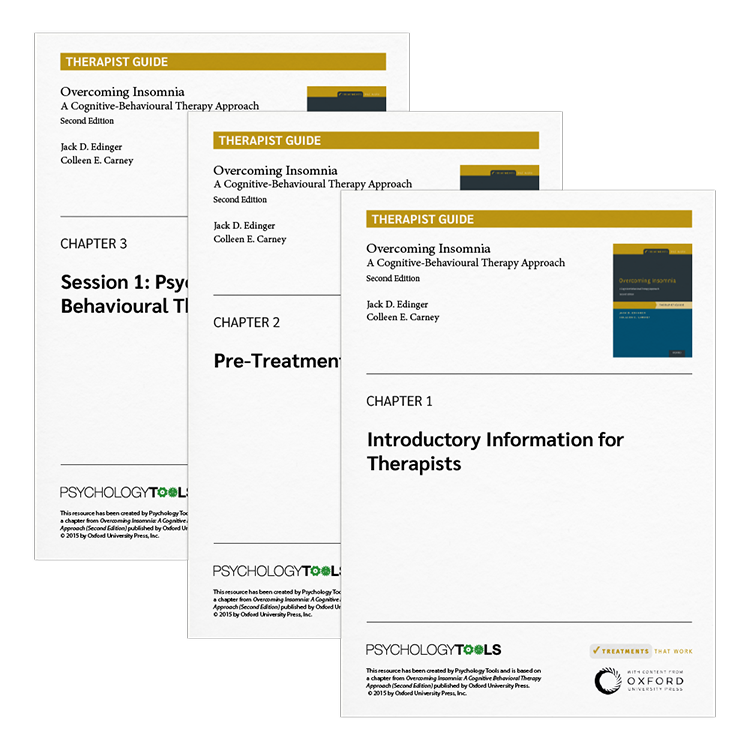
What's inside
- Guided session structure for implementing CBT-I.
- Assessment tools, including sleep diaries and validated insomnia measures.
- Behavioral techniques, such as sleep restriction and stimulus control.
- Cognitive strategies to challenge dysfunctional sleep beliefs.
- Guidance on troubleshooting non-responsive cases.
- Special considerations for comorbid conditions and treatment-resistant insomnia.
FAQs
How this resource helps improve clinical outcomes
- Reduces long-term reliance on sleep medications.
- Promotes sustainable, healthy sleep habits.
- Improves emotional regulation and reduces anxiety.
- Enhances cognitive function and daytime energy levels.
- Provides a structured, research-backed intervention for therapists.
Clinicians who use this resource also use
References and further reading
- Bastien, C. H., Vallieres, A., & Morin, C. M. (2001). Validation of the Insomnia Severity Index as an outcome measure for insomnia research. Sleep Medicine, 2(4), 297-307.
- Bootzin, R. R. (1972). Stimulus control treatment for insomnia. Proceedings of the American Psychological Association, 7, 395-396.
- Edinger, J. D., & Means, M. K. (2005). Cognitive-behavioral therapy for primary insomnia. Clinical Psychology Review, 25(5), 539-558.
- Morin, C. M., Bootzin, R. R., et al. (2006). Psychological and behavioral treatment of insomnia: Update of the recent evidence (1998-2004). Sleep, 29(11), 1398-1414.
- Spielman, A. J., Caruso, L. S., & Glovinsky, P. B. (1987). A behavioral perspective on insomnia treatment. Psychiatric Clinics of North America, 10(4), 541-553.
Just enter your name and email address, and we'll send you Overcoming Insomnia (Second Edition): Therapist Guide (English US) straight to your inbox. You'll also receive occasional product update emails wth evidence-based tools, clinical resources, and the latest psychological research.
Product
Company
Support
- © 2026 Psychology Tools. All rights reserved
- Terms & Conditions
- Privacy Policy
- Cookies Policy
- Disclaimer
Working...
We value your privacy
This site uses strictly necessary cookies to function. We do not use cookies for analytics, marketing, or tracking purposes. By clicking “OK”, you agree to the use of these essential cookies. Read our Cookie Policy
